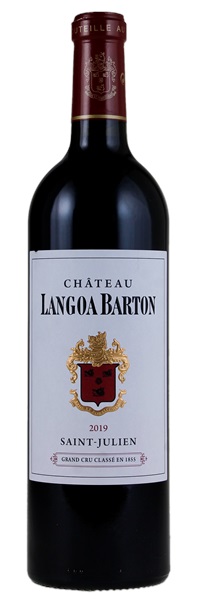Light label condition issue
Removed from a temperature and humidity controlled wine cellar; Purchased upon release; Consignor is original owner

Image above is an example. To view the image of the lot, click the item number.
Estimate
A timeless classic for patient readers with cold cellars, the 2019 Langoa Barton is performing beautifully in bottle, unwinding in the glass with a rich bouquet of cassis, plums, cigar wrapper, pencil shavings and loamy soil. Medium to full-bodied, deep and elegantly muscular, its concentrated core of fruit is framed by lively acids and ripe, powdery tannins that assert themselves on the youthfully firm finish.
Ripe and juicy, with a youthfully compact core of steeped plum, blueberry and black currant fruit. The finish is scored by violet and singed apple wood notes, with a tug of tar peeking in as well. Offers ample fruit and inner freshness, so this should open up soon enough. Cabernet Sauvignon, Merlot and Cabernet Franc.